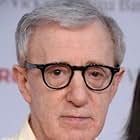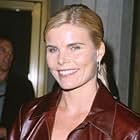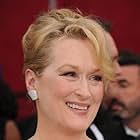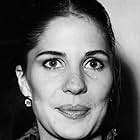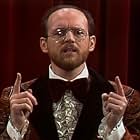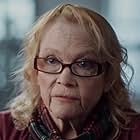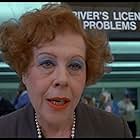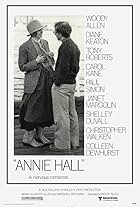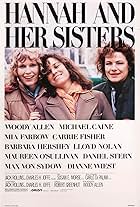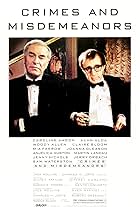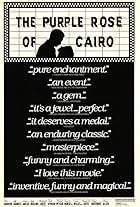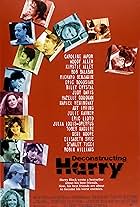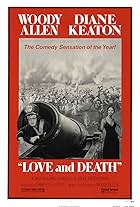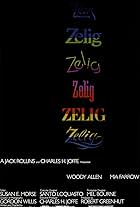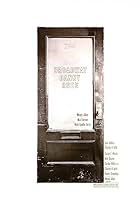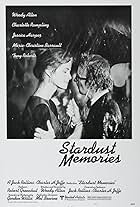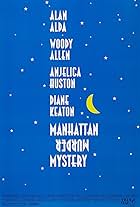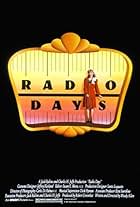IMDb RATING
7.8/10
149K
YOUR RATING
The life of a divorced television writer dating a teenage girl is further complicated when he falls in love with his best friend's mistress.The life of a divorced television writer dating a teenage girl is further complicated when he falls in love with his best friend's mistress.The life of a divorced television writer dating a teenage girl is further complicated when he falls in love with his best friend's mistress.
- Nominated for 2 Oscars
- 16 wins & 24 nominations total
Anne Byrne Hoffman
- Emily
- (as Anne Byrne)
- Director
- Writers
- All cast & crew
- Production, box office & more at IMDbPro
Storyline
Did you know
- TriviaThere is allegedly a clause in the studio's contract for the film that mandates that the movie must always be shown in letterbox format in any home video release and/or TV/cable broadcast.
- GoofsWhen Isaac asks Tracy how old he will be when she is thirty-six, she says "sixty-three," and he agrees. Earlier Isaac says that she is seventeen and he is forty-two, which means he is 25 years older than her, and would therefore be sixty-one, not sixty-three.
- Quotes
Isaac Davis: All the times I come over here, I can't understand how you can prefer her to me.
Jill: You can't understand that?
Isaac Davis: No. It's a mystery to me.
Jill: Well, you knew my history when you married me.
Isaac Davis: I know. My analyst warned me, but you were so beautiful that I got another analyst.
- Crazy creditsOne of the very few Woody Allen films to not have traditional opening credits, save the production company bumper (United Artists), and the film title MANHATTAN is seen as a long vertical flashing bright neon sign, located on the side of a New York City building, and is seen for under seven seconds just before Woody Allen narrates his first line.
- ConnectionsEdited into Intimate Portrait: Diane Keaton (2001)
- SoundtracksRhapsody in Blue
(1924)
Music by George Gershwin
Performed by The New York Philharmonic
Conducted by Zubin Mehta
Piano soloist: Paul Jacobs
Music director: Zubin Mehta
Featured review
After the phenomenal success of 'Annie Hall,' the hilarious Oscar-winning comedy detailing the romantic exploits of neurotic Jewish comedian Alvey Singer, Woody Allen had become of America's most respected filmmakers. In 1979, he released what is generally accepted as his second great masterpiece, 'Manhattan,' a poignant tribute to the city that Allen loves so dearly. Written by Allen and his 'Annie Hall'-collaborator Marshall Brickman, 'Manhattan' stars Allen as Isaac Davis, a twice-divorced, 42-year-old comedy writer who is intimately involved with a 17-year-old high school student, Tracy (an Oscar-nominated Mariel Hemingway). Meanwhile, Isaac begins to fall for Mary (Diane Keaton), who is the secret mistress of his best friend (Michael Murphy). Adding to all of Isaac's troubles, his former second wife, Jill (Meryl Streep), who had originally left him for another woman, has plans to write a tell-all book on their failed marriage.
If this all seems very confusing to you, then you're not alone. Just as in 'Annie Hall,' Allen plays the hopeless romantic who is struggling desperately to understand the maddening complexity of human relationships. Though Tracy is only seventeen years old, she is arguably the most honest and mature of the women in Isaac's life; nonetheless, he doesn't treat her seriously. In his mind, anything that she says is quite obviously influenced by the naivety and downright ignorance of the young. Their relationship was never meant to be anything more than a brief "fling," and so he feels no guilt for seeing another woman behind his back, an act that makes him livid when it ultimately happens to him.
'Manhattan' was shot in beautiful crisp black-and-white by Gordon Willis, who has also worked on, among countless other films, 'Annie Hall' and the three installments of 'The Godfather.' The cinematography offers New York City a romantic 1940s feel, reminiscent of how Allen claims to remember the city as a child: "Maybe it's a reminiscence from old photographs, films, books and all that. But that's how I remember New York. I always heard Gershwin music with it, too. In 'Manhattan' I really think that we that's me and cinematographer Gordon Willis succeeded in showing the city. When you see it there on that big screen it's really decadent."
Mysteriously, this film remains the least-liked by the director himself, though, at the same time, it was also his most commercially successful. As you've no doubt already noticed from this review, 'Manhattan' is often likened to 1977's 'Annie Hall,' perhaps due to the repeated casting of Allen and Keaton (a not uncommon occurrence) or its similar attempt to uncover the elusive secrets behind love and relationships. In terms of film-making style, however, the films are quite dissimilar. Unlike the highly-energetic 'Annie Hall' which cut back and forward in time, visited old memories, broke the fourth wall and made conversations with passing extras 'Manhattan' boasts a more classical approach quiet, softly-spoken and accompanied by a wistfully slow jazzy soundtrack, also relying heavily on the works of George Gershwin.
If this all seems very confusing to you, then you're not alone. Just as in 'Annie Hall,' Allen plays the hopeless romantic who is struggling desperately to understand the maddening complexity of human relationships. Though Tracy is only seventeen years old, she is arguably the most honest and mature of the women in Isaac's life; nonetheless, he doesn't treat her seriously. In his mind, anything that she says is quite obviously influenced by the naivety and downright ignorance of the young. Their relationship was never meant to be anything more than a brief "fling," and so he feels no guilt for seeing another woman behind his back, an act that makes him livid when it ultimately happens to him.
'Manhattan' was shot in beautiful crisp black-and-white by Gordon Willis, who has also worked on, among countless other films, 'Annie Hall' and the three installments of 'The Godfather.' The cinematography offers New York City a romantic 1940s feel, reminiscent of how Allen claims to remember the city as a child: "Maybe it's a reminiscence from old photographs, films, books and all that. But that's how I remember New York. I always heard Gershwin music with it, too. In 'Manhattan' I really think that we that's me and cinematographer Gordon Willis succeeded in showing the city. When you see it there on that big screen it's really decadent."
Mysteriously, this film remains the least-liked by the director himself, though, at the same time, it was also his most commercially successful. As you've no doubt already noticed from this review, 'Manhattan' is often likened to 1977's 'Annie Hall,' perhaps due to the repeated casting of Allen and Keaton (a not uncommon occurrence) or its similar attempt to uncover the elusive secrets behind love and relationships. In terms of film-making style, however, the films are quite dissimilar. Unlike the highly-energetic 'Annie Hall' which cut back and forward in time, visited old memories, broke the fourth wall and made conversations with passing extras 'Manhattan' boasts a more classical approach quiet, softly-spoken and accompanied by a wistfully slow jazzy soundtrack, also relying heavily on the works of George Gershwin.
Details
- Release date
- Country of origin
- Language
- Also known as
- Chuyện Tình Manhattan
- Filming locations
- Production company
- See more company credits at IMDbPro
Box office
- Budget
- $9,000,000 (estimated)
- Gross US & Canada
- $39,946,780
- Opening weekend US & Canada
- $485,734
- Apr 29, 1979
- Gross worldwide
- $40,194,067
- Runtime1 hour 36 minutes
- Color
- Sound mix
- Aspect ratio
- 2.39 : 1
Contribute to this page
Suggest an edit or add missing content










